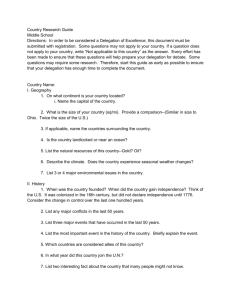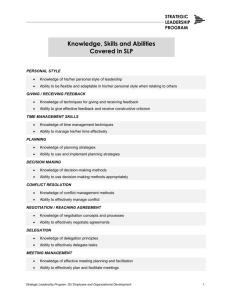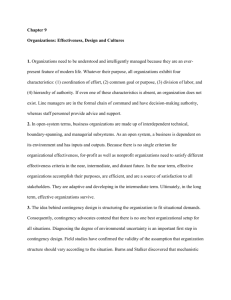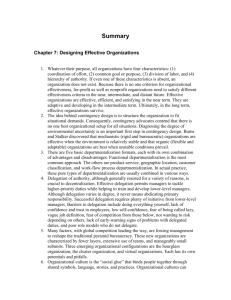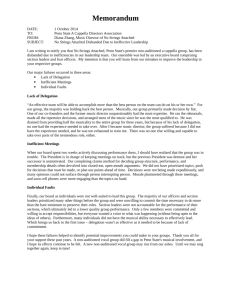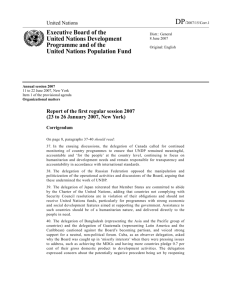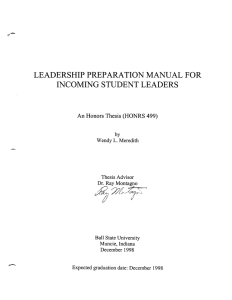Delegation of duties and responsibilities is necessary for the well
advertisement
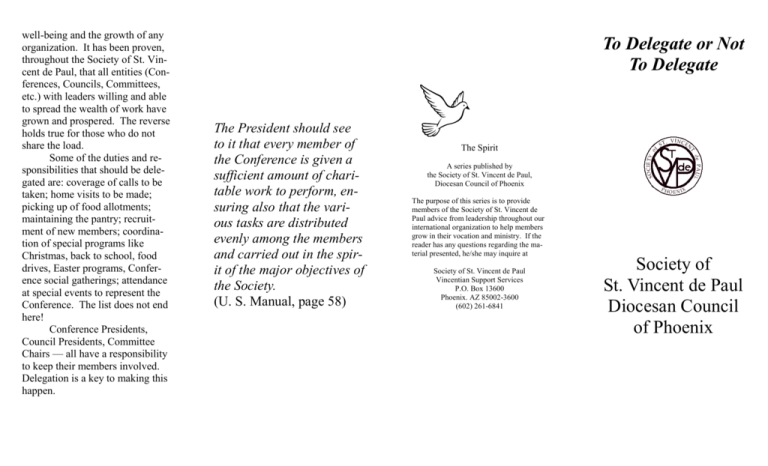
well-being and the growth of any organization. It has been proven, throughout the Society of St. Vincent de Paul, that all entities (Conferences, Councils, Committees, etc.) with leaders willing and able to spread the wealth of work have grown and prospered. The reverse holds true for those who do not share the load. Some of the duties and responsibilities that should be delegated are: coverage of calls to be taken; home visits to be made; picking up of food allotments; maintaining the pantry; recruitment of new members; coordination of special programs like Christmas, back to school, food drives, Easter programs, Conference social gatherings; attendance at special events to represent the Conference. The list does not end here! Conference Presidents, Council Presidents, Committee Chairs — all have a responsibility to keep their members involved. Delegation is a key to making this happen. To Delegate or Not To Delegate The President should see to it that every member of the Conference is given a sufficient amount of charitable work to perform, ensuring also that the various tasks are distributed evenly among the members and carried out in the spirit of the major objectives of the Society. (U. S. Manual, page 58) The Spirit A series published by the Society of St. Vincent de Paul, Diocesan Council of Phoenix The purpose of this series is to provide members of the Society of St. Vincent de Paul advice from leadership throughout our international organization to help members grow in their vocation and ministry. If the reader has any questions regarding the material presented, he/she may inquire at Society of St. Vincent de Paul Vincentian Support Services P.O. Box 13600 Phoenix. AZ 85002-3600 (602) 261-6841 Society of St. Vincent de Paul Diocesan Council of Phoenix Many Conference Presidents share a common trait. They have a tendency to believe they must do everything that needs to be done. They believe that by doing everything they are setting a good example for others to follow. This will encourage others to just pitch in and help. Actually, the opposite is true. Studies have shown that, in general, people will do only what their leaders tell them to do. Occasionally you will find someone who will step up and join in, but that is not the norm. People are very content to allow “someone else” to do the work. In fact, “someone else” is responsible for 95% of all work accomplished in this world. When a Conference President takes on the task of doing all that needs to be done, some unhealthy things occur: If people believe that the job is already being done, they don’t have to do it. This decreases initiative. If someone else is doing the job, they lose ownership of the effort. In loss of ownership, there is also loss of support for the effort. If the President is doing everything, almost no one will want to be the next President. If the President is doing everything, he/she will get burned out pretty quickly. This can lead the President to feel like he/she is alone in this ministry. Members will drop out due to a lack of things to do. And, the list goes on and on. The answer to this is delegation. Delegation is more than just giving someone something to do. Delegation requires good leadership skills. There are five qualities of a good leader. The leader must have a vision. In other words, the goal/task must be clearly defined in the leader’s own mind. The leader must be able to communicate this vision to others — not simply talk, but be understood. The leader must see that others are empowered — they must take ownership of the goal as well as the tasks that are necessary to achieve the goal. The leader must ensure that action takes place — must get the process started. And last, the leader must be content to allow people to do things their way. There are three degrees of delegation: weak, moderate and strong. An example of weak delegation is to simply throw the issue/problem/task out to all present and ask if someone would like to take this on. The normal result of this is that everyone looks at everyone else hoping that “someone else” will step forward. Occasionally, someone will say, “Yes, I’ll do it.” This is likely to be someone who is already busy with a lot of other projects. In many cases, the President will end up telling the group to “think about it and we’ll talk some more at the next meeting.” Then the President gets it started. An example of moderate delegation is to describe the task and look around the room. The first person you make eye contact with is the one you offer the job to. Then, don’t take “no” for an answer. The problem here is that the one assigned is not necessarily the one best suited for the task. Strong delegation is the best method. In this form of delegation, the President of the Conference has taken the time to get to know the members of the Conference. He understands what their strengths and weaknesses are and what type of tasks they are best suited for. The President also knows how to ask rather than command. Delegation of duties and responsibilities is necessary for the
